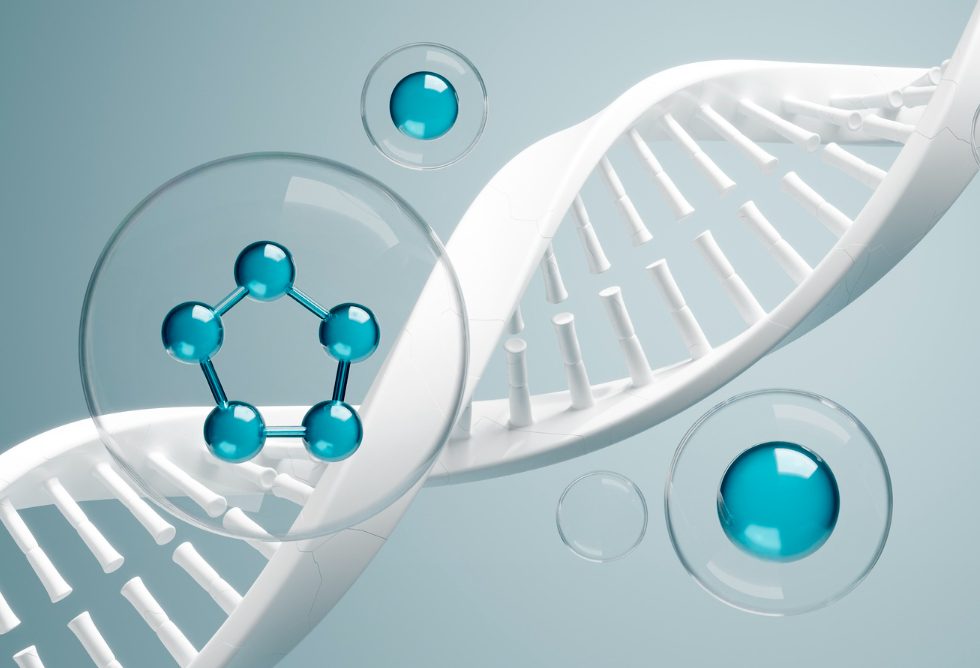Table Of Contents
The world of peptides represents one of medicine’s most promising frontiers, yet it’s also become a Wild West of unregulated supplements, questionable claims, and serious safety concerns. From revolutionary diabetes treatments like Ozempic to dangerous black-market injections causing athlete suspensions, peptides embody both incredible potential and significant risks.
This comprehensive guide cuts through the marketing hype and medical jargon to deliver what you need to know about peptides in 2025. Whether you’re considering peptide therapy, questioning supplement claims, or simply want to understand this rapidly evolving field, we’ll explore the complete picture—the remarkable benefits, the real dangers, and the ugly truth about unregulated use.
Based on the latest research from Nature, NCBI, FDA databases, and clinical trials, this article provides evidence-based insights to help you navigate the complex world of peptides safely and effectively.
Key Highlights
- Market Boom: Peptides play crucial roles in health, hormone regulation, immunity, and modern therapeutics, with the global peptide drug market projected to reach $68.8 billion by 2028
- FDA Approval Surge: In 2023, 16% of new drug approvals were peptides, with over 100 peptide drugs now approved globally and 11.4% of all new chemical entities from 2016-2024 being peptides
- Proven Medical Benefits: Established uses include weight loss (GLP-1 agonists), cancer therapy, diabetes treatment, and skin health, with over 150 peptides currently in clinical trials
- Significant Risk Factors: Key concerns include immune reactions (immunogenicity), toxicity from impurities, drug interactions, and long-term safety unknowns
- Unregulated Market Dangers: Booming black-market peptides, abuse in sports and anti-aging, contaminated or mislabeled injections leading to adverse events and FDA recalls
- Consumer Reality Check: Most peptide supplements are unregulated with weak efficacy evidence, while injectable peptides sold online pose serious contamination and safety risks
- Evolving Regulations: The regulatory landscape is rapidly changing with new safety standards, advanced screening technologies, and stricter enforcement measures
16%
of 2023 FDA new drug approvals were peptides
$68.8B
projected peptide market value by 2028
150+
peptides currently in clinical trials
100+
peptide drugs approved globally
What Are Peptides?
Peptides are short chains of amino acids—the building blocks of proteins—that serve as crucial messengers in our bodies. Think of them as biological text messages, carrying specific instructions between cells to regulate everything from hormone production to immune responses.
The Biological Basics
Unlike full proteins, which can contain hundreds of amino acids, peptides typically contain 2-50 amino acids linked together. This smaller size allows them to be more targeted and often more easily absorbed by the body. They exist naturally in every living organism and play essential roles in:
- Hormone regulation: Insulin, growth hormone, and many others are peptides
- Immune signaling: Helping coordinate immune responses and inflammation
- Cellular communication: Transmitting messages between different body systems
- Tissue repair: Promoting healing and regeneration processes
Types of Peptides
| Type | Source | Primary Uses | Regulation Status |
|---|---|---|---|
| Therapeutic Peptides | Synthetic/Lab-made | Prescription medications | FDA-approved |
| Bioactive Peptides | Food sources/Natural | Nutrition, skin care | Supplement regulation |
| Synthetic Peptides | Laboratory | Research, supplements | Varies widely |
| Peptide Hormones | Body/Synthetic | Hormone therapy | Prescription required |
Endogenous vs. Synthetic Peptides
Endogenous peptides are those naturally produced by your body, such as insulin for blood sugar regulation or endorphins for pain relief. Synthetic peptides are lab-created versions that either mimic natural peptides or provide entirely new functions.
The key distinction lies in regulation and safety. Natural peptides in your body are precisely controlled by complex feedback mechanisms. Synthetic peptides, particularly those sold as supplements, often bypass these natural controls and can have unpredictable effects.
The Good: Peptide Benefits in Medicine and Health
 FDA Success Story
FDA Success Story
Peptide drugs represent some of the most significant medical breakthroughs in recent years, with proven efficacy in treating previously difficult-to-manage conditions.
Revolutionary Diabetes and Weight Loss Treatments
The most celebrated success story in peptide therapy involves GLP-1 receptor agonists like semaglutide (Ozempic/Wegovy). These synthetic peptides mimic a natural hormone that regulates blood sugar and appetite, leading to:
- Significant weight loss: Clinical trials show 15-20% body weight reduction
- Improved diabetes control: HbA1c reductions of 1.5-2.0 points
- Cardiovascular benefits: Reduced risk of heart attack and stroke
- Long-term safety profile: Extensive clinical data supporting safety
Tirzepatide (Mounjaro/Zepbound) represents the next generation, combining GLP-1 and GIP receptor activation for even greater efficacy. These medications demonstrate how properly developed and regulated peptide drugs can transform patient outcomes.
Cancer Immunotherapy Breakthroughs
Therapeutic peptides are revolutionizing cancer treatment through personalized immunotherapy approaches:
- Tumor-specific peptides: Vaccines that train the immune system to recognize cancer cells
- Checkpoint inhibitors: Peptide-based drugs that unleash immune responses against tumors
- CAR-T cell therapy support: Peptides that enhance engineered immune cell effectiveness
Recent trials show promising results for melanoma, glioblastoma, and other challenging cancers, with peptide-based immunotherapy becoming a cornerstone of precision medicine.
Proven Medical Applications
| Medical Area | Peptide Examples | Clinical Evidence | FDA Status |
|---|---|---|---|
| Diabetes | Insulin, GLP-1 agonists | Extensive clinical data | Multiple approvals |
| Obesity | Semaglutide, Tirzepatide | 15-20% weight loss | FDA approved |
| Cancer | Immunotherapy peptides | Phase II/III trials | Accelerated approval path |
| Skin Health | Cosmetic peptides | Mixed evidence | Cosmetic regulation |
| Hormone Therapy | Growth hormone, others | Established efficacy | Prescription required |
Skin Health and Anti-Aging
Bioactive peptides in skincare show legitimate benefits when properly formulated:
- Collagen stimulation: Certain peptides can promote natural collagen production
- Wound healing: Proven benefits for skin repair and regeneration
- Anti-inflammatory effects: Reduced skin irritation and redness
However, the evidence remains mixed for many cosmetic claims, and topical absorption is often limited compared to injectable forms.
Clinical Development Pipeline
The future looks promising with over 400-600 peptides in preclinical development and more than 150 in active clinical trials. Areas of focus include:
- Neurological disorders (Alzheimer’s, Parkinson’s)
- Autoimmune diseases
- Metabolic disorders beyond diabetes
- Rare genetic conditions
- Personalized medicine applications
 Key Takeaway
Key Takeaway
When properly developed, tested, and regulated, peptides represent some of the most effective and targeted therapies in modern medicine. The key is ensuring they’re FDA-approved and prescribed by qualified healthcare providers.
The Bad: Side Effects, Risks, and Regulatory Red Flags
 Critical Safety Warning
Critical Safety Warning
Even FDA-approved peptides carry risks, and unregulated products pose significantly greater dangers. Understanding these risks is essential for safe use.
Immunogenicity: When Your Body Fights Back
Immunogenicity represents one of the most serious concerns with peptide therapy. This occurs when the immune system recognizes a peptide as foreign and develops antibodies against it, potentially leading to:
- Loss of efficacy: The treatment stops working as antibodies neutralize the peptide
- Allergic reactions: From mild skin reactions to severe anaphylaxis
- Autoimmune responses: The immune system may attack similar natural peptides in the body
- Cross-reactivity: Antibodies may interfere with other medications or natural hormones
Recent studies show immunogenicity rates of 5-15% for newer peptide drugs, with some patients developing clinically significant reactions that require treatment discontinuation.
Common Side Effects of FDA-Approved Peptides
| Peptide Category | Common Side Effects | Incidence Rate | Severity |
|---|---|---|---|
| GLP-1 Agonists | Nausea, vomiting, diarrhea | 20-40% | Mild to moderate |
| Growth Hormone | Joint pain, fluid retention | 15-25% | Moderate |
| Cancer Peptides | Fatigue, injection site reactions | 30-50% | Variable |
| Injectable Forms | Injection site reactions | 10-30% | Usually mild |
Drug Interactions and Safety Concerns
Recent research highlights significant interaction risks with peptide supplements and medications:
- Blood sugar medications: Peptides affecting glucose can cause dangerous hypoglycemia
- Blood pressure drugs: Some peptides can amplify or counteract antihypertensive effects
- Anticoagulants: Potential bleeding risk increases
- Immunosuppressants: Unpredictable immune system effects
The Over-the-Counter Problem
The biggest “bad” aspect of the peptide world involves unregulated supplements and the regulatory gaps that allow dangerous products to reach consumers:
 FDA Warning Signs
FDA Warning Signs
- Products claiming to be “research chemicals” sold for human use
- Injectable peptides sold without prescriptions
- Claims of “pharmaceutical grade” without actual pharmaceutical oversight
- Social media marketing targeting fitness enthusiasts and anti-aging seekers
Contamination and Quality Issues
Analysis of non-prescription peptide products reveals alarming quality problems:
- Bacterial contamination: Dangerous bacteria in injectable products
- Heavy metal contamination: Lead, mercury, and other toxic metals
- Incorrect dosing: Products containing 10-1000% of stated amounts
- Wrong compounds: Completely different substances than labeled
- Degraded peptides: Improperly stored products that have broken down
Long-term Safety Unknowns
Even for FDA-approved peptides, long-term effects remain largely unknown:
- Cancer risk: Some growth-promoting peptides may theoretically increase cancer risk
- Organ damage: Long-term effects on kidneys, liver, and cardiovascular system
- Hormonal disruption: Potential interference with natural hormone production
- Dependency issues: Whether the body stops producing natural peptides
Recent FDA Recalls and Warnings
The FDA has issued numerous warnings and recalls in 2023-2024 regarding peptide products:
- Contaminated injectables: Multiple recalls due to bacterial contamination
- Unapproved peptide clinics: Enforcement actions against clinics selling research peptides
- False advertising: Companies making unsupported anti-aging claims
- Import seizures: Increased seizures of illegal peptide imports
 Bottom Line on Safety
Bottom Line on Safety
While FDA-approved peptides have established safety profiles through rigorous testing, the unregulated market poses serious risks. Never use peptides without medical supervision, and be extremely cautious of any non-prescription peptide products.
The Ugly: Abuse, Scams, and Unregulated Dangers
Beyond the legitimate medical concerns lies a darker world of peptide abuse, dangerous black markets, and predatory marketing that puts consumers at serious risk.
Sports Abuse and Performance Enhancement
The sports world has been rocked by peptide abuse scandals, with athletes using unregulated substances for performance enhancement:
 WADA-Banned Substances
WADA-Banned Substances
The World Anti-Doping Agency prohibits numerous peptides due to their performance-enhancing potential and health risks.
High-Profile Cases and Consequences
- Growth hormone releasing peptides (GHRPs): Used to boost muscle mass and recovery
- EPO-mimicking peptides: Designed to increase red blood cell production
- Fat-burning peptides: Unproven compounds marketed for rapid weight loss
- Recovery peptides: Substances claimed to accelerate healing from injuries
Recent athlete suspensions and Olympic disqualifications have highlighted the widespread abuse of these substances, often obtained from underground sources with no quality control.
The Anti-Aging Scam Economy
The promise of eternal youth has created a multi-billion dollar peptide scam economy targeting vulnerable consumers:
Common Anti-Aging Peptide Scams
- “Fountain of youth” peptides: Unproven compounds promising to reverse aging
- DIY injection kits: Dangerous home injection systems sold online
- Medical tourism clinics: Unregulated facilities in countries with lax oversight
- Celebrity endorsements: Influencers promoting untested products
 Real Consequences of Anti-Aging Peptide Abuse
Real Consequences of Anti-Aging Peptide Abuse
- Hospital admissions from contaminated injections
- Serious infections from non-sterile products
- Hormonal disruption causing long-term health problems
- Financial exploitation of desperate consumers
Black Market Operations
The underground peptide market represents one of the ugliest aspects of this industry:
How Black Market Peptides Operate
- Research chemical loophole: Selling substances “not for human consumption”
- Online marketplaces: Websites that appear legitimate but sell dangerous products
- Social media networks: Private groups sharing sources and injection protocols
- Underground labs: Illegal manufacturing operations with no safety standards
Documented Health Disasters
Real-world consequences of unregulated peptide use include:
| Health Incident | Cause | Outcome | Source |
|---|---|---|---|
| Severe infections | Contaminated injectables | Hospitalizations, sepsis | FDA MedWatch reports |
| Allergic reactions | Unknown peptide compositions | Anaphylaxis, emergency treatment | ER case reports |
| Hormonal disruption | Uncontrolled peptide use | Long-term endocrine damage | Endocrinology literature |
| Organ damage | Toxic impurities | Kidney and liver problems | Toxicology reports |
The Psychology of Peptide Scams
Understanding why people fall victim to peptide scams helps explain the scope of the problem:
- Desperation: People with chronic conditions seeking miracle cures
- Misinformation: Sophisticated marketing that mimics legitimate medical sources
- Authority figures: Fake doctors and scientists promoting products
- Community pressure: Online groups encouraging risky behaviors
- Regulatory confusion: Consumers don’t understand the difference between approved and research peptides
Law Enforcement Challenges
Combating illegal peptide operations faces several obstacles:
- International operations: Many suppliers operate from countries with weak regulation
- Rapidly changing formulations: New peptides appear faster than regulations can address them
- Legal loopholes: Research chemical exemptions create regulatory gaps
- Resource limitations: Enforcement agencies lack resources for comprehensive oversight
Financial Exploitation
The economic impact of peptide scams extends beyond health risks:
- Overpriced products: Simple peptides sold at 1000%+ markups
- Subscription scams: Recurring charges for ineffective products
- Medical tourism costs: Expensive trips for unproven treatments
- Insurance fraud: False claims for non-covered peptide treatments
 Red Flags for Peptide Scams
Red Flags for Peptide Scams
- Promises of “miraculous” anti-aging effects
- Claims that doctors “don’t want you to know” about certain peptides
- Pressure to buy immediately or miss out on special pricing
- Testimonials from unnamed “patients” or obvious actors
- Products sold as “research chemicals” but marketed for human use
- No medical supervision required for powerful injectable substances
The Future: Therapeutic Potential vs Consumer Hype
The peptide field stands at a crossroads between tremendous medical potential and dangerous consumer exploitation. Understanding future trends helps separate legitimate opportunities from continued hype.
Legitimate Medical Innovations
The future of therapeutic peptides includes exciting developments that could revolutionize healthcare:
Oral Peptide Delivery Systems
- Nanocarrier technology: Protecting peptides from stomach acid degradation
- Absorption enhancers: Compounds that help peptides cross intestinal barriers
- Enteric coatings: Specialized coatings that release peptides in optimal locations
- Success stories: Oral versions of injectable diabetes medications in development
Personalized Peptide Medicine
The future of peptide therapy lies in personalization:
- Genetic testing: Tailoring peptide treatments based on individual genetic profiles
- Biomarker-guided therapy: Using blood tests to optimize peptide dosing
- Cancer immunotherapy: Custom peptides based on individual tumor profiles
- Pharmacogenomics: Understanding how genetics affect peptide metabolism
Technological Advances
| Technology | Current Status | Potential Impact | Timeline |
|---|---|---|---|
| AI Drug Design | Early adoption | Faster peptide development | 2-5 years |
| Green Chemistry | Research phase | Reduced environmental impact | 3-7 years |
| Nanotechnology | Clinical trials | Better delivery systems | 2-5 years |
| Continuous Manufacturing | Implementation | Lower costs, better quality | 1-3 years |
Regulatory Evolution
Regulatory agencies are adapting to address both innovation and safety:
Enhanced Safety Measures
- AI-driven screening: Automated systems to detect dangerous products
- Real-world evidence: Post-market surveillance using real patient data
- International cooperation: Better coordination between global regulatory agencies
- Supply chain tracking: Blockchain and other technologies for product traceability
Consumer Protection Initiatives
- Education campaigns: Public awareness about peptide risks and benefits
- Healthcare provider training: Better education for doctors prescribing peptides
- Stricter enforcement: More resources for investigating illegal peptide operations
- Clear labeling requirements: Better distinction between approved and research peptides
Market Predictions and Reality Checks
While the peptide market will continue growing, realistic expectations are crucial:
Legitimate Growth Areas
- Diabetes and obesity: Continued development of metabolic peptides
- Cancer treatment: Expansion of peptide-based immunotherapy
- Rare diseases: Peptides for conditions with limited treatment options
- Precision medicine: Targeted therapies based on individual patient characteristics
Areas of Continued Hype
- Anti-aging supplements: Most claims will remain unsupported by evidence
- Performance enhancement: Illegal use will likely continue despite risks
- DIY peptides: Home use will remain dangerous and ineffective
- Miracle cures: Overblown claims for complex medical conditions
What Consumers Should Expect
For consumers interested in legitimate peptide therapy:
 Future Best Practices
Future Best Practices
- Medical supervision will remain essential: Legitimate peptide therapy will always require qualified healthcare providers
- Costs may decrease: Better manufacturing may make FDA-approved peptides more affordable
- More oral options: Injectable peptides may become less common as oral delivery improves
- Personalized approaches: Generic peptide therapy will give way to individualized treatments
- Better safety monitoring: Improved systems for detecting and preventing adverse reactions
The Role of Education
The future success of peptide medicine depends on education:
- Public education: Helping consumers distinguish between legitimate and fraudulent products
- Healthcare provider training: Ensuring doctors understand peptide therapy benefits and risks
- Regulatory clarity: Clear guidelines for what constitutes legal peptide use
- Scientific literacy: Improving public understanding of clinical evidence and research
 Reality Check
Reality Check
While peptides hold tremendous promise for treating serious medical conditions, the consumer supplement market will likely remain problematic. The key to benefiting from peptide advances is working with qualified healthcare providers and avoiding unregulated products.
Frequently Asked Questions
Most oral peptide supplements are poorly absorbed and lack regulatory oversight. Injectable peptides sold online may be contaminated, unapproved, and pose significant health risks due to lack of FDA regulation. The safest approach is to only use peptides prescribed by licensed healthcare providers and dispensed through legitimate pharmacies. Many supplement claims are unsupported by clinical evidence.
Potential side effects include injection site reactions (10-30% of users), gastrointestinal symptoms like nausea and diarrhea (20-40% with GLP-1 peptides), immune reactions, drug interactions, and rarely, autoimmune events. Always consult healthcare providers before starting any peptide therapy, and report any unusual symptoms immediately. Side effects vary significantly based on the specific peptide and individual patient factors.
Some prescription peptide drugs like GLP-1 agonists (Ozempic, Wegovy) have proven benefits for weight loss and diabetes management, with clinical trials showing 15-20% body weight reduction. However, most over-the-counter products lack evidence, and the FDA warns against non-prescribed use. Performance-enhancing peptides are banned in sports and carry serious health risks. Legitimate peptide therapy requires medical supervision.
Long-term effects remain largely unknown for many peptides. Concerns include potential immune system effects, contamination risks from unregulated products, organ damage from toxic impurities, and theoretical cancer risks from growth-promoting peptides. FDA-approved peptides have better safety data but still require ongoing monitoring. Unregulated peptides pose significantly higher unknown risks.
Some cosmetic peptides show minor benefits for skin health, including collagen stimulation and wound healing. However, most anti-aging claims are unproven, especially for oral supplements. Topical peptides have limited absorption compared to injectable forms. Be extremely skeptical of anti-aging peptide products sold without prescription, as these often lack scientific support and regulatory oversight.
Only work with licensed healthcare providers who can prescribe FDA-approved peptides from legitimate pharmacies. Verify FDA approval status through official databases, avoid internet purchases of injectable peptides, and be wary of clinics promoting “research peptides” for human use. Ask your doctor about established peptide therapies for your specific condition rather than seeking unproven supplements.
Certain peptides have performance-enhancing effects and are prohibited by the World Anti-Doping Agency (WADA) for both ethical and safety reasons. These include growth hormone releasing peptides, EPO-mimicking compounds, and recovery-enhancing substances. Athletic use carries serious health risks and career consequences, with numerous documented cases of athlete suspensions and health complications from contaminated or improperly dosed products.
Immunogenicity means the potential for a drug to trigger an immune response. With peptides, this can cause the immune system to develop antibodies that neutralize the treatment, reducing effectiveness, or cause allergic reactions ranging from mild to severe. Studies show 5-15% immunogenicity rates for newer peptide drugs. This risk emphasizes the importance of medical supervision and proper patient monitoring during peptide therapy.
Conclusion
The world of peptides presents a fascinating paradox of medical breakthrough and consumer danger. On one hand, we have revolutionary treatments like GLP-1 agonists transforming diabetes and obesity care, with over 100 FDA-approved peptide drugs demonstrating the tremendous therapeutic potential of these biological messengers.
On the other hand, the unregulated peptide supplement market represents a significant public health risk, with contaminated products, false claims, and dangerous DIY injection protocols causing real harm to consumers seeking quick fixes for complex health issues.
The key takeaways for consumers are clear: peptide therapy can be remarkably effective when properly developed, tested, and supervised by qualified healthcare providers. The FDA approval process, while imperfect, provides crucial safety oversight that simply doesn’t exist in the supplement world.
As we look toward the future, peptides will likely play an increasingly important role in personalized medicine, cancer treatment, and metabolic disorders. However, this progress will only benefit patients who work within the legitimate medical system rather than chasing unproven supplements or underground alternatives.
If you’re considering peptide therapy, start with a conversation with your healthcare provider about FDA-approved options for your specific condition. Avoid the temptation of unregulated products, no matter how compelling the marketing claims may be. The difference between safe, effective peptide medicine and dangerous experimentation often comes down to that single decision.
The future of peptide medicine is bright, but only for those who choose the path of evidence-based care over the false promises of unregulated markets.
References
- NCBI PMC. (2025). “Beyond Efficacy: Ensuring Safety in Peptide Therapeutics”. Pharmaceutical Research.
- NCBI PMC. (2025). “Follow-Up Investigation of Therapeutic Peptides Approved by FDA”. Journal of Pharmaceutical Sciences.
- NCBI PMC. (2025). “2024 FDA TIDES (Peptides and Oligonucleotides) Harvest”. Molecular Therapy.
- MDPI. (2025). “Peptides as Versatile Regulators in Cancer Immunotherapy”. International Journal of Molecular Sciences.
- FDA. (2024). Orange Book Database – Approved Drug Products. U.S. Food and Drug Administration.
- WADA. (2024). World Anti-Doping Code Prohibited List. World Anti-Doping Agency.
- FDA. (2024). FDA Safety Recalls and Alerts. U.S. Food and Drug Administration.
- Clinical Trials Database. (2024). Peptide Therapy Clinical Trials. National Institutes of Health.
Disclaimer:
The information provided on MD-Pilot is for educational and informational purposes only. It is not intended as a substitute for professional medical advice, diagnosis, or treatment. Always seek the advice of your physician or other qualified healthcare provider with any questions you may have regarding a medical condition. Never disregard professional medical advice or delay in seeking it because of something you have read on this website.
Recomended Articles
View AllWeekly Health Intel
Get evidence-based health tips, latest research, and exclusive guides delivered weekly




